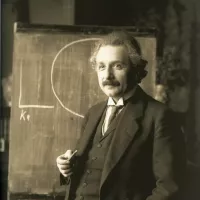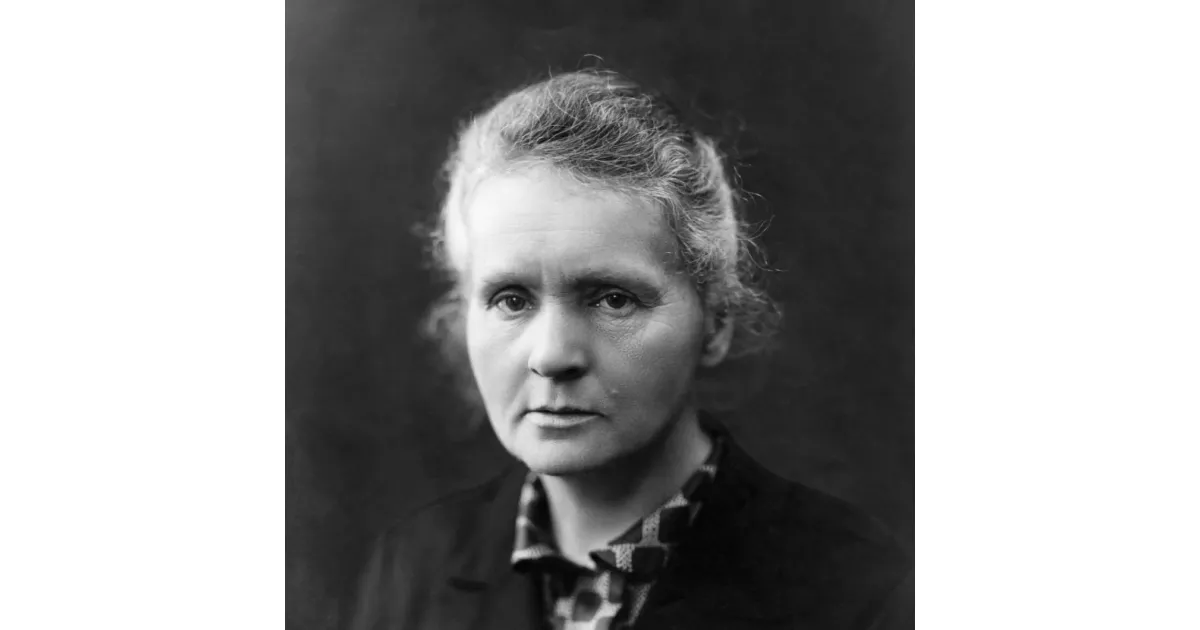A closer look at the biggest achievements of Marie Curie. Awards, milestones, and records that define success.
Marie Curie, born Maria Skłodowska in Poland, was a pioneering physicist and chemist renowned for her groundbreaking research on radioactivity. Working primarily in France, she was the first woman to win a Nobel Prize, the first person and only woman to win the Nobel Prize twice, and the only person to win the Nobel Prize in two different scientific fields (Physics and Chemistry). Curie's work led to the discovery of polonium and radium, and she developed techniques for isolating radioactive isotopes. Her research was crucial in developing treatments for cancer. She died in 1934 from aplastic anemia likely caused by her long-term exposure to radiation.
1900: First Woman Faculty Member at École Normale Supérieure
In 1900, Marie Curie became the first woman faculty member at the École Normale Supérieure, marking a significant achievement for women in academia. Her husband joined the faculty of the University of Paris in the same year.
June 1903: Curie Awarded Doctorate from University of Paris
In June 1903, Marie Curie was awarded her doctorate from the University of Paris, supervised by Gabriel Lippmann.
December 1903: Nobel Prize in Physics Awarded
In December 1903, the Royal Swedish Academy of Sciences awarded Pierre Curie, Marie Curie, and Henri Becquerel the Nobel Prize in Physics for their research on radiation phenomena. Marie Curie was the first woman to be awarded a Nobel Prize.
1903: Nobel Prize in Physics
In 1903, Marie Curie, along with her husband Pierre Curie and Henri Becquerel, was awarded the Nobel Prize in Physics for their pioneering work on radioactivity. Marie Curie was the first woman to ever win a Nobel Prize.
1905: Curies' Nobel Lecture
In 1905, the Curies traveled to Stockholm to deliver their Nobel lecture. The award money allowed them to hire their first laboratory assistant.
May 1906: Marie Curie Offered Pierre's Professorship
In May 1906, following Pierre Curie's death, the physics department of the University of Paris offered Marie Curie his chair. She accepted, becoming the first woman to hold a professorship at the University of Paris.
1906: First Woman Professor at the University of Paris
In 1906, Marie Curie became the first woman to hold a professorship at the University of Paris, marking a significant milestone in her career and for women in academia.
1911: Second Nobel Prize
Despite the Langevin scandal, in 1911, the Royal Swedish Academy of Sciences awarded Marie Curie her second Nobel Prize, this time in Chemistry, for her discovery of the elements radium and polonium. The chair of the Nobel committee, Svante Arrhenius, attempted to prevent her attendance at the official ceremony due to her affair with Langevin. Curie replied that she would be present at the ceremony, because "the prize has been given to her for her discovery of polonium and radium" and that "there is no relation between her scientific work and the facts of her private life".
1911: Nobel Prize in Chemistry
In 1911, Marie Curie won the Nobel Prize in Chemistry for her discovery of the elements polonium and radium, solidifying her legacy as a pioneering scientist. She used techniques she invented for isolating radioactive isotopes.
1920: French Government Stipend
In 1920, for the 25th anniversary of the discovery of radium, the French government established a stipend for Marie Curie.
1921: Received radium at the White House
In 1921, U.S. President Warren G. Harding presented Marie Curie with 1 gram of radium at the White House.
1922: Fellow of the French Academy of Medicine
In 1922, Marie Curie became a fellow of the French Academy of Medicine. She also travelled to other countries.
1930: Elected to International Atomic Weights Committee
In 1930, Marie Curie was elected to the International Atomic Weights Committee, on which she served until her death.
1931: Awarded the Cameron Prize
In 1931, Marie Curie was awarded the Cameron Prize for Therapeutics of the University of Edinburgh.
1995: Entombment in the Paris Panthéon
In 1995, Marie Curie became the first woman to be entombed in the Paris Panthéon based on her own merits, an honor recognizing her significant contributions to science.
2011: Year of Marie Curie
In 2011, Poland declared it the Year of Marie Curie during the International Year of Chemistry, celebrating her profound impact on science and society.
Mentioned in this timeline

The White House located at Pennsylvania Avenue NW in Washington...

Albert Einstein - was a German-born theoretical physicist renowned for...
France officially the French Republic is primarily located in Western...

Books are a means of storing information as text or...
Spain officially the Kingdom of Spain is located in Southern...

The horse scientifically known as Equus ferus caballus is a...
Trending

3 minutes ago Carrie Underwood's 'American Idol' connection boosts ABC ratings during Hollywood Week.

3 minutes ago Kelsey Plum and Breanna Stewart discuss WNBA labor negotiations and potential strike.

4 minutes ago Jane Fonda Skewers Trump and Leads Comedy Skit Post Paramount-Warner Bros. Deal

4 minutes ago Caleb Downs: Potential Bengals Draft Pick, Injury Rumors Surface, Generational DB?

5 minutes ago Kyle Kuzma takes on bench role for Bucks, aiming for second-half success.

5 minutes ago Ryan Rollins' Role with the Bucks, Potential Franchise Record, and Future Outlook
Popular

Jesse Jackson is an American civil rights activist politician and...

Hillary Diane Rodham Clinton is a prominent American politician lawyer...

Jim Carrey is a Canadian-American actor and comedian celebrated for...

XXXTentacion born Jahseh Dwayne Ricardo Onfroy was a controversial yet...

Kashyap Pramod Patel is an American lawyer who became the...

Barack Obama the th U S President - was the...
